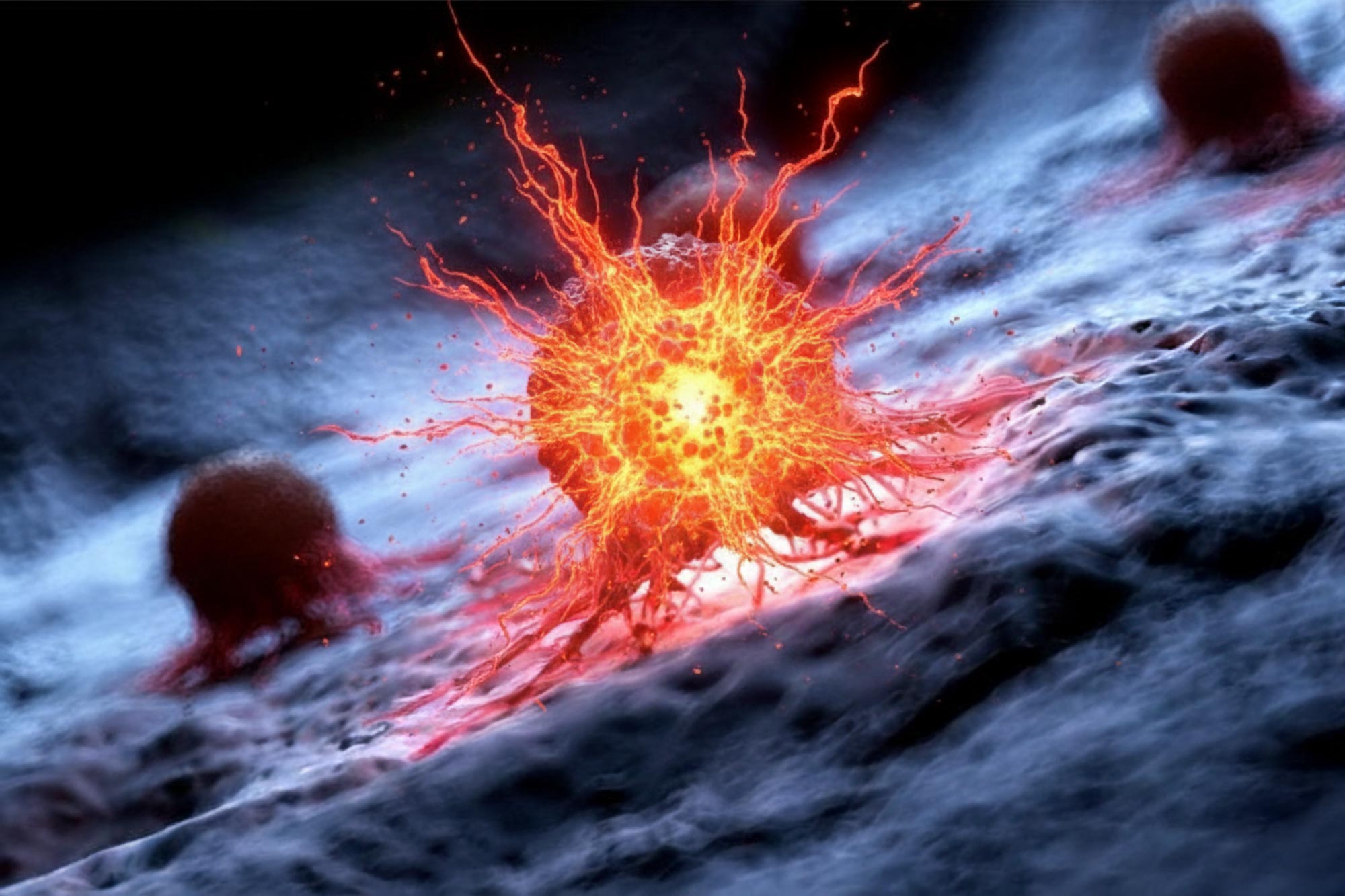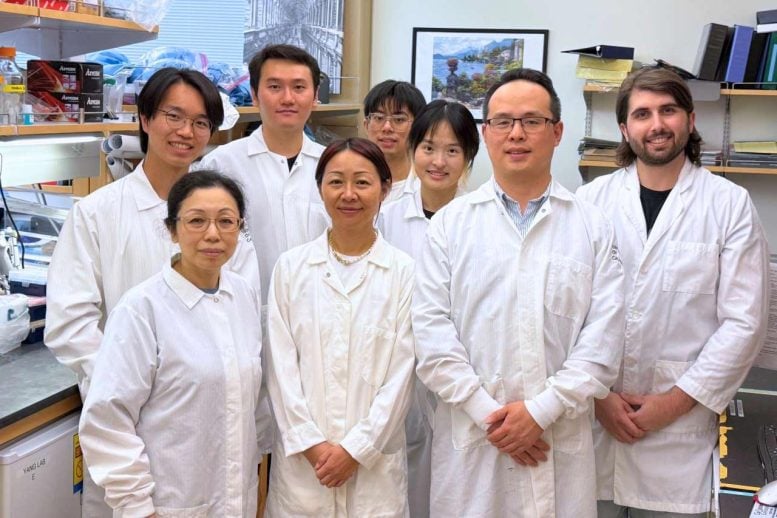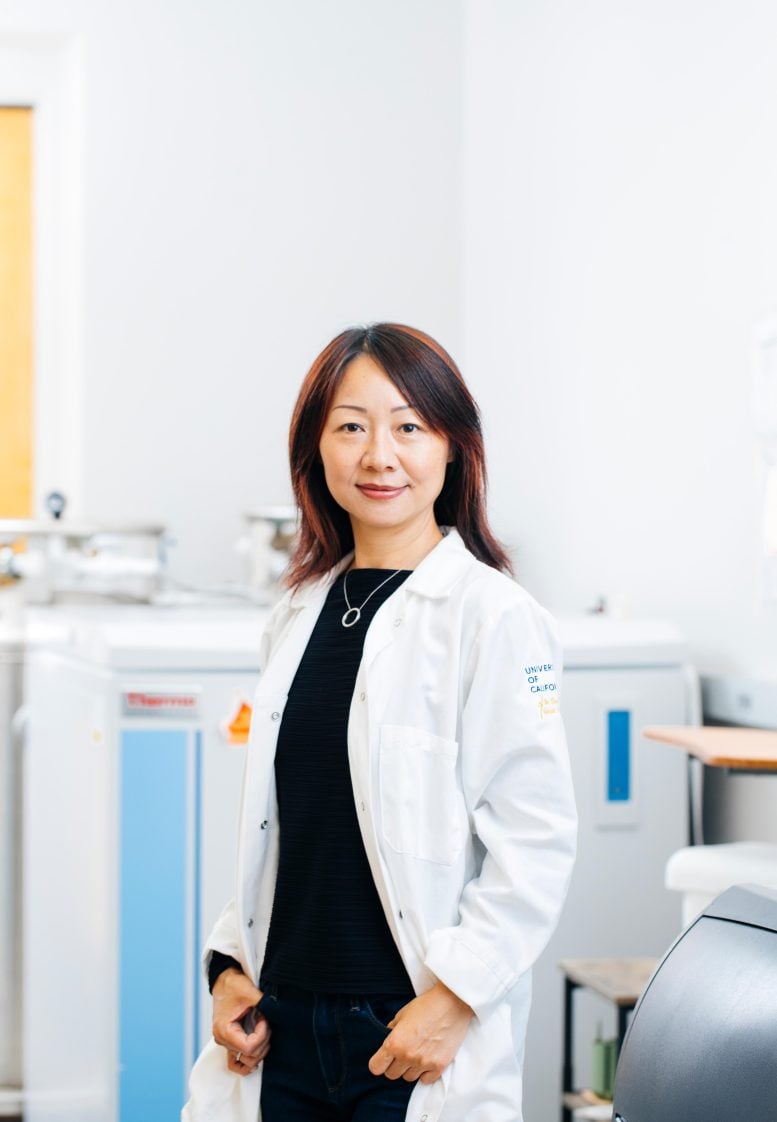This Widely-Used Antidepressant Could Be a Powerful New Weapon Against Cancer

Antidepressants help immune cells fight cancer. They may improve therapy effectiveness.
A commonly prescribed antidepressant may also strengthen the body’s defenses against cancer, according to new research from UCLA.
The study, published in Cell, showed that selective serotonin reuptake inhibitors (SSRIs) improved the cancer-fighting ability of T cells and reduced tumor growth in several types of cancers across both mouse and human tumor models.
“It turns out SSRIs don’t just make our brains happier; they also make our T cells happier — even while they’re fighting tumors,” said Dr. Lili Yang, senior author of the new study and a member of the Eli and Edythe Broad Center of Regenerative Medicine and Stem Cell Research at UCLA. “These drugs have been widely and safely used to treat depression for decades, so repurposing them for cancer would be a lot easier than developing an entirely new therapy.”
The role of serotonin in the body
According to the CDC, one in eight adults in the United States takes antidepressants, with SSRIs being the most widely prescribed. Medications such as Prozac and Celexa raise serotonin levels — often referred to as the brain’s “happiness hormone” — by blocking the action of a protein called the serotonin transporter (SERT).
Although serotonin is most often linked to mood regulation, it also influences many processes throughout the body, including digestion, metabolism, and immune system function.

Yang’s team began studying serotonin’s link to cancer after observing that immune cells taken from tumors contained elevated levels of molecules involved in serotonin regulation. Their initial focus was on MAO-A, an enzyme that breaks down serotonin as well as other neurotransmitters like norepinephrine and dopamine.
From MAO inhibitors to SSRIs
In 2021, the researchers discovered that T cells increase production of MAO-A when they detect tumors, which weakens their cancer-fighting abilities. Treating mice with melanoma and colon cancer using MAO inhibitors (MAOIs), the earliest class of antidepressant drugs, allowed T cells to attack tumors more effectively.
Because MAOIs carry significant safety risks, including strong side effects and dangerous interactions with certain foods and medications, the team shifted their focus to another serotonin-regulating target: SERT.
“Unlike MAO-A, which breaks down multiple neurotransmitters, SERT has one job — to transport serotonin,” explained Dr. Bo Li, first author of the study and a senior research scientist in the Yang lab. “SERT made for an especially attractive target because the drugs that act on it — SSRIs — are widely used with minimal side effects.”

The researchers tested SSRIs in mouse and human tumor models representing melanoma, breast, prostate, colon and bladder cancer. They found that SSRI treatment reduced average tumor size by over 50% and made the cancer-fighting T cells, known as killer T cells, more effective at killing cancer cells.
“SSRIs made the killer T cells happier in the otherwise oppressive tumor environment by increasing their access to serotonin signals, reinvigorating them to fight and kill cancer cells,” said Yang, who is also a professor of microbiology, immunology and molecular genetics and a member of the UCLA Health Jonsson Comprehensive Cancer Center.
How SSRIs could boost the effectiveness of cancer therapies
The team also investigated whether combining SSRIs with existing cancer therapies could improve treatment outcomes. They tested a combination of an SSRI and anti-PD-1 antibody — a common immune checkpoint blockade, or ICB, therapy — in mouse models of melanoma and colon cancer. ICB therapies work by blocking immune checkpoint molecules that normally suppress immune cell activity, allowing T cells to attack tumors more effectively.
The results were striking: the combination significantly reduced tumor size in all treated mice and even achieved complete remission in some cases.
“Immune checkpoint blockades are effective in fewer than 25% of patients,” said James Elsten-Brown, a graduate student in the Yang lab and co-author of the study. “If a safe, widely available drug like an SSRI could make these therapies more effective, it would be hugely impactful.”
Next steps toward clinical research
To confirm these findings, the team will investigate whether real-world cancer patients taking SSRIs have better outcomes, especially those receiving ICB therapies.
“Since around 20% of cancer patients take antidepressants — most commonly SSRIs — we see a unique opportunity to explore how these drugs might improve cancer outcomes,” said Yang, who is also a member of the Goodman-Luskin Microbiome Center and the Parker Institute for Cancer Immunotherapy. “Our goal is to design a clinical trial to compare treatment outcomes between cancer patients who take these medications and those who do not.”
Yang added that using existing FDA-approved drugs could speed up the process of bringing new cancer treatments to patients, making this research especially promising.
“Studies estimate the bench-to-bedside pipeline for new cancer therapies costs an average of $1.5 billion,” she said. “When you compare this to the estimated $300 million cost to repurpose FDA-approved drugs, it’s clear why this approach has so much potential.”
Reference: “Serotonin transporter inhibits antitumor immunity through regulating the intratumoral serotonin axis” by Bo Li, James Elsten-Brown, Miao Li, Enbo Zhu, Zhe Li, Yuning Chen, Elliot Kang, Feiyang Ma, Jennifer Chiang, Yan-Ruide Li, Yichen Zhu, Jie Huang, Audrey Fung, Quentin Scarborough, Robin Cadd, Jin J. Zhou, Arnold I. Chin, Matteo Pellegrini and Lili Yang, 21 May 2025, Cell.
DOI: 10.1016/j.cell.2025.04.032
The newly identified therapeutic strategy is covered by a patent application filed by the UCLA Technology Development Group on behalf of the Regents of the University of California, with Yang and Li as co-inventors.
This research was supported by the National Institutes of Health, the California Institute for Regenerative Medicine, the Tower Cancer Research Foundation, a UCLA Broad Stem Cell Research Center Rose Hills Foundation Innovator Grant and a UCLA Jonsson Comprehensive Cancer Center and Broad Stem Cell Research Center Ablon Scholars Award.
Never miss a breakthrough: Join the SciTechDaily newsletter.
Source link

